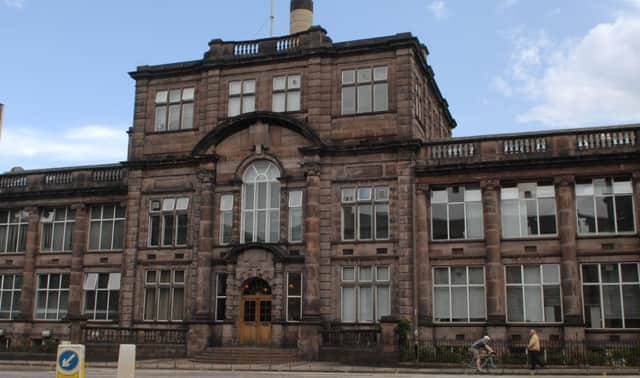Joyce McMillan: What next for Summerhall?


Yet from the moment it opened its doors as a centre for the arts early in 2011, Summerhall, on the edge of the Meadows, has been on a fast track to becoming an indispensable part of Edinburgh’s cultural scene. And today, with the venue presenting a year-round programme of music, theatre, dance, children’s shows, visual art, debates, readings, craft fairs, ceilidhs and social events – and already established as one of the busiest and most exciting venues on the Edinburgh Fringe – it’s already difficult to recall a time when this vast, rambling complex of courtyards, lecture-rooms, bars and thrilling “found spaces” was not there, as a vital creative resource for Edinburgh artists and audiences.
Just a few weeks ago – to the delight of Summerhall’s artistic director, Rupert Thomson – the building’s atmospheric basement spaces played host to The Voice Thief, the latest show from leading Scottish children’s company Catherine Wheels; and it’s characteristic of the impact of Summerhall that the space itself played a part in shaping that show, introducing a classic Summerhall mood that combines the gothic-macabre and the rational, and makes it easy for artists to explore the post-enlightenment borderlands between art and science.
Advertisement
Hide AdYet for any new arts initiative launched on such a wave of enthusiasm and success, the challenge is always to shift the organisation onto a basis that will be sustainable in the long term; and Summerhall is now reaching that vital stage in its evolution. The building was bought, in 2011, by the Edinburgh artist and philanthropist Robert McDowell, with the encouragement of his old friend, the great Edinburgh arts entrepreneur Richard Demarco, part of whose collection is housed there; and endowed with a budget which enabled it to launch without the constraints of public funding. Over the years, it has developed a powerful identity not only as a venue for exihibitions and performance, but as a social centre – famous for its beer brewed on the premises – and an office base for a range of small artistic organisations, including Neu Reekie, the producers of fierce cutting-edge evenings of music and spoken word. The vast range of activities in the building offers huge potential for development, but can also create tensions; earlier this year, the venue’s gifted visual arts curator Paul Robertson left the building overnight, never to return. And it certainly makes Summerhall increasingly central to the wellbeing of the whole creative scene in Edinburgh.
“I think the time will come when Summerhall will have to look for Creative Scotland support for parts of its programme,” says Rupert Thomson, who also runs his own producing company alongside his Summerhall work, and was appointed this week as a part-time associate theatre producer at the Lowry in Manchester, a development which could lead to substantial joint working between the venues. “And there are obvious organisational challenges involved in that kind of transition. Yet I also think the opportunities are huge. Over the last four years, we’ve developed close creative links with a range of Scottish companies and artists who want to work here at Summerhall, and that’s increasingly exciting and rewarding.
“And we’re also absolutely passionate about bringing work from other cultures to be seen in Scotland, all year round. We recently played host to an evening of performance by Dario Fo’s great friend and interpreter Mario Pirovano, and in the spring we’re staging a stunning version of The Revenger’s Tragedy by the Belgian company FAST, called I Have Endured You With An Ear Of Fire.
“To be honest, I don’t know if there’s a gap in the market for this kind of international work, or how many tickets we can sell for it. But I do know that there’s a gap in the culture, where that year-round international experience should be; and helping to fill that gap is a key part of what Summerhall is, and what it aims to be in future.”